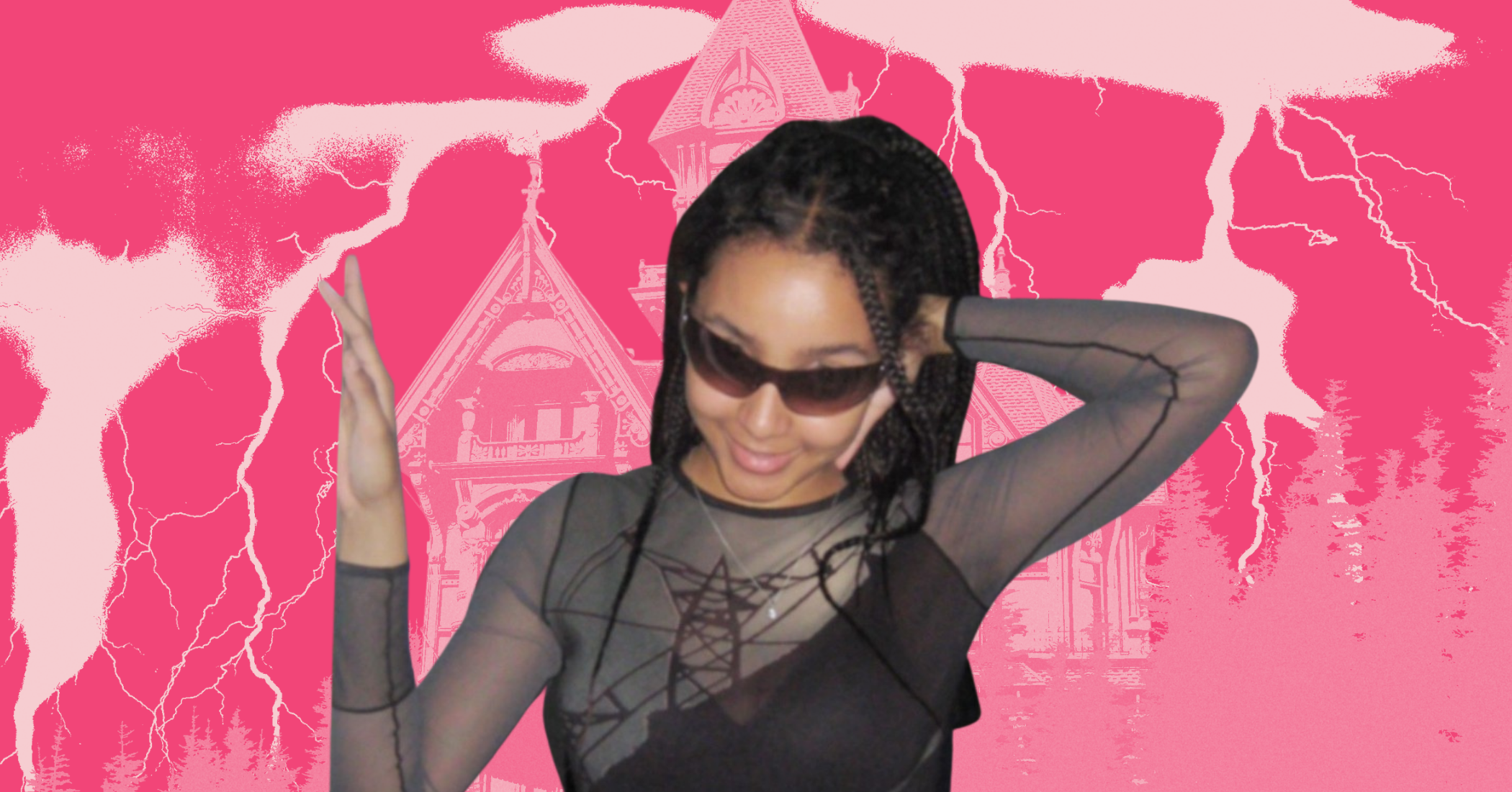PinkPantheress’ Debut Album 'to hell with it' Takes Bedroom Pop to New Places
By Nia Tucker
In the midst of the pandemic, a small, faceless TikTok account by the user PinkPantheress posted a clip of a song they had made from their bedroom wanting feedback from the rest of us stuck inside our homes. It wasn’t of the typical bedroom pop variety; it was much cooler, featuring her signature siren-like, soft vocals and canned drum sounds. The song, which we now know as “Pain,” was posted originally on Spotify with an edited picture of Rodrickm the cult favorite character from the 2010 live action Diary of a Wimpy Kid film. From then on, PinkPantheress released a flurry of heavily demanded singles under 2 minutes with images one would’ve pulled from Tumblr.
Now, in October 2021, the 20-year-old artist has released her first full-length album, to hell with it, with more self-produced tracks that have already gone viral on TikTok before an official release, and collaborations with industry names like Mura Masa.
Her songs are uniquely inspired by breakbeat pop and R&B music—a cross between Janet Jackson’s The Velvet Rope and an early Clairo.There is a special quality to the themes of unrequited love, falling out of love, and exasperation with growing up that PinkPantheress is able to bring to her pop music. Her songwriting and ability to home in on the softness and angst that continues from late teens to our young adulthood is incredible. Each song on the new album evokes an image that has inspired many people in our generation—the iconic Lizzie McGuire-pink bedroom-diary writing girl with her feet in the air crossed behind her as she fiddles with her gel pen and reminisces on her day.
Although the album wraps up at a short 18 minutes and a majority of the songs are ones that TikTok users may be familiar with, the newer, unheard tracks—“Last valentines,” “Noticed I cried,” “Reason,” “All my friends know,” and “Nineteen,”— reveal another side to the artist that feels concretely more mature and emotionally bare.
Songs like “Passion,” which has now amassed 28 million streams since it was released earlier this year as a single, have hinted at this need for the artist to delve into her insecurities, with lines like “The teachers always called it a shame / They say I don't have passion the same / As I did a few years before / They don't see the light there anymore” that speak to an audience of teens and adults who have been feeling especially inadequate in the past 2 years of isolation and are distancing from who they were before they have grown into themselves.
My personal favorite off the album is “Nineteen,” is the final track, aside from the bonus that she included. It begins with the sounds of orchestral loops, ocean waves, dissonant clapping and chiming, providing a simple backdrop to a track that is the most sensitive song in her catalogue. In each verse she takes a trip down memory lane to her teen years and hometown, recognizing that not only have all the buildings and shops changed, but so have her early relationships with friends and family. There is a specific feeling of realizing you feel completely unfamiliar with the lens that you once looked at the world through and that others also perceive you differently, for better or for worse, and it's inevitable and unavoidable. In the chorus she sings, “Wasn't meant to be / This bored at nineteen / My friend lived next to me / Now she won't want to see / Me look differently / Now that I'm nineteen,” a lamentation of getting older and reckoning with drifting from those we love. It’s longest on the album, PinkPantheress’ longest track to date running at 2 minutes and 33 seconds, which allows her to be as sentimental as she needs to be.
Other bedroom pop and hyperpop music has been critiqued as being shallow, and to add to that, the genre has been overwhelmingly white and repetitive in its themes. PinkPantheress provides a perspective to the genre that not only takes influences from Black artists before her in pop and R&B, making her music ostenbily groovier and more danceable, but also speaks to a vulnerability that Black artists are not particularly allowed to express in music, especially that of pop.
to hell with it is a perfect album in that it demonstrates an artist’s growth from start to present, and the newer songs prove that if this is the trajectory she is taking, it can only get better from here. The title itself speaks to her lack of care of appealing to any specific audience and a claim over her autonomy as she takes the reins over her enigmatic public image and remains true to those candy-sweet first notes that she brought to the public forum on TikTok in what seems like forever ago.

